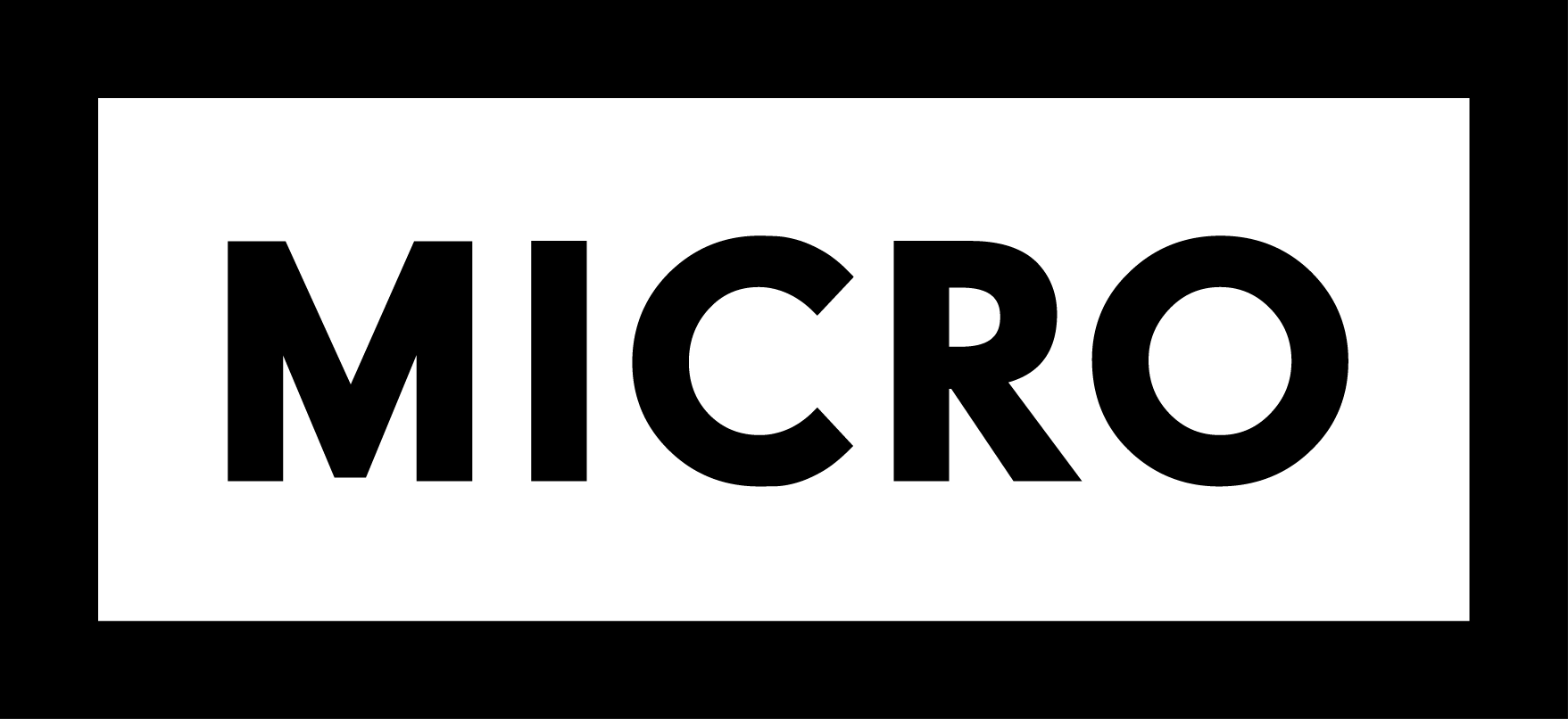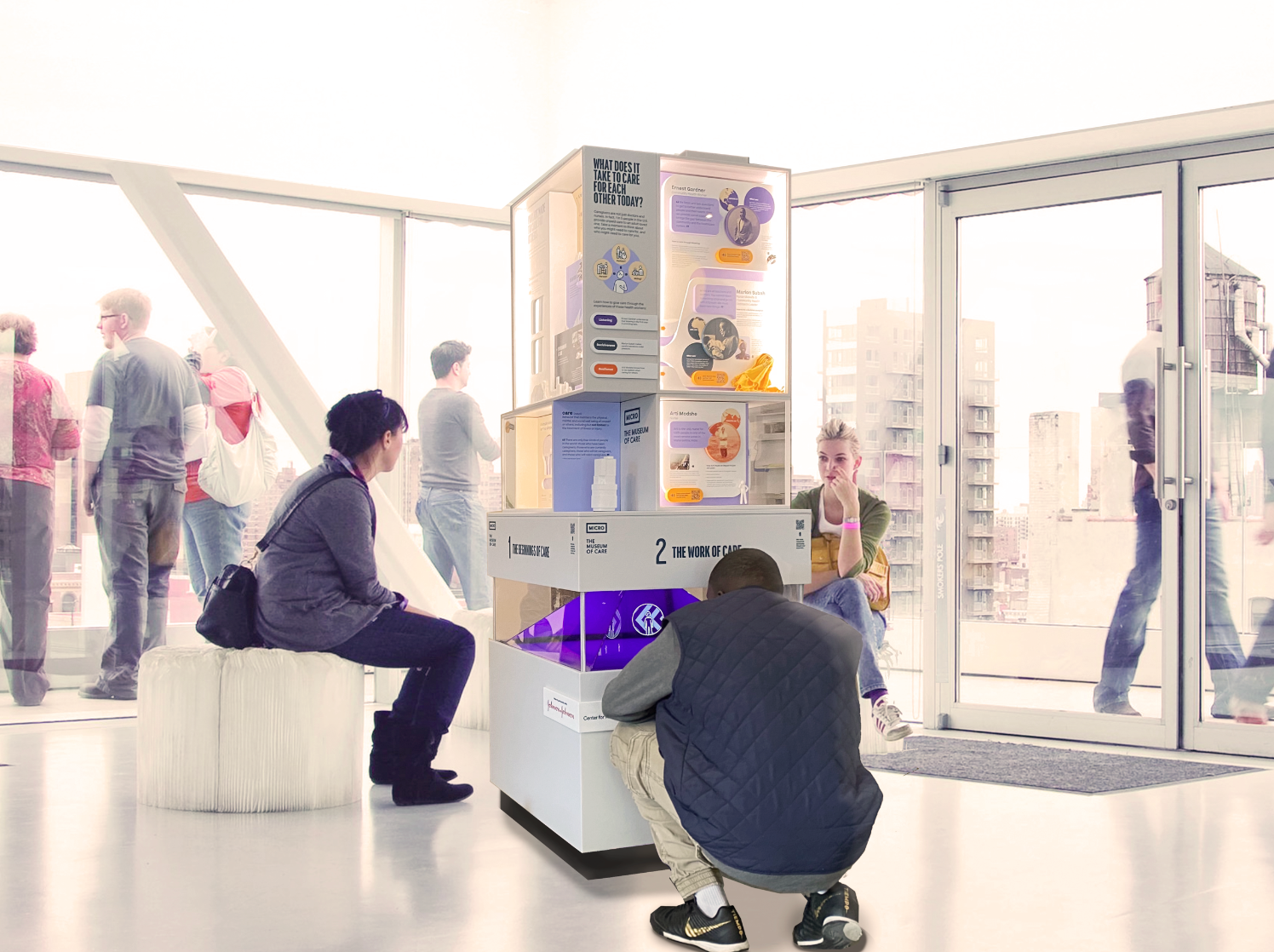
MICRO’s first Modular Collaboration is here.
Our new Museum of Care explores the past, present, and future of caring for one another told through the stories and voices of frontline health workers.
Highlighting the importance of community-oriented care beyond the walls of hospital systems, the museum encourages visitors to consider themselves as a caregiver and reimagine the shape of their communities in order to provide equitable care for all.
The Museum of Care is currently open to the public as it goes on a tour of public libraries throughout all five boroughs of New York. To complement the museum’s exhibits, Brooklyn Public Library librarians have prepared a series of books for children and adults about caregivers and patient advocacy.
Providing care in the modern world is a remarkable undertaking. It is far more complex than simply providing medicine. Visitors learn about the skills required to provide care today through the life stories of care workers from across the globe: a community health worker, a midwife, and a nurse who work in the United States, Africa, and Asia Pacific.
Odds are that you will be a caregiver at some point in your life. Right now 1 in 5 people in the U.S. provide unpaid care work to an adult loved one. Take a moment to think about who in your life is going to need care. Learn how to care for your loved ones through the experiences of these caregivers.
Ernest GardnerCommunity Health WorkerPhiladelphia, Pennsylvania
Marion SubahNurse MidwifeCountry Director, Last Mile Health, Liberia
Arti ModsheTraveling NurseAkola District, India
Improve Your Health
Learn how to be a care giver for yourself and your loved ones.
Discover how to take community action for better health.
Learn more about ways to care for yourself during the pandemic, as suggested by the CDC.
Learn more about how you can best support frontline workers everywhere through the different types of changemaker you can be in your community.
Support Your Community
The CDC reports that 80% of poor health comes from social determinants, like our access to resources, our living conditions and our environments. This means that investing in our communities can make a huge positive impact on our health.
Air pollution, unsafe water supply, poor sanitation and hazardous chemicals exert significant pressures on human health, particularly the elderly and the young. Find out the consequences of inaction.
Advocate for Health Workers
The Center for Health Worker Innovation curates this list of resources for frontline healthcare workers. Share it with the care workers in your life.
For example, here are three ways to address healthcare worker burnout.
Here is a list of policies that support health care workers.
The American Medical Association has an excellent list of strategies that care centers can implement to care for healthcare workers during the pandemic.
Even now, many hospitals and care centers still do not have enough personal protective equipment. Contact your local representatives to demand more supplies and better support for our health care workers. You can use this handy app to send texts directly to your representatives.
CREATIVE DIRECTION AND CURATION: MICRO EXHIBIT AND INDUSTRIAL DESIGN: MICRO
GRAPHIC DESIGN: Hunter Gatherer
Thank you to our advisory team members who generously donated their time and expertise to the Museum of Care:
Joanne Peter, Director, Social Innovation, Center for Health Worker Innovation; Jerry Lewis Ong, Assistant Vice President, Temasek; Bolu Brea, Medic in General Practice Based in London, Social Media Activist, Founder of The Omo Yoruba Club; Annette Sampson, Registered Nurse, Warm Springs Health & Wellness Center; Lindsay Portnoy, Associate Professor, Northeastern University’s Doctor of Education Program; Whitney Schreiber, Diabetes Outreach Nurse; Lisa Fitzpatrick, Physician, Medical Epidemiologist, and Founder at Grapevine Health; Madeline Ballard, Co-Founder and Executive Director, Community Health Impact Coalition; and Margaret Gurowitz, Chief Historian, Johnson & Johnson.
We take research seriously. Check our sources.













